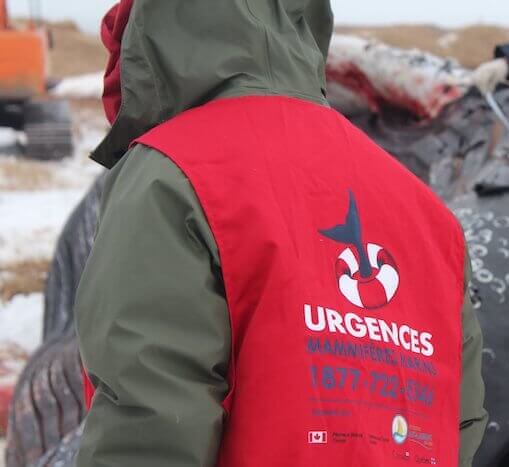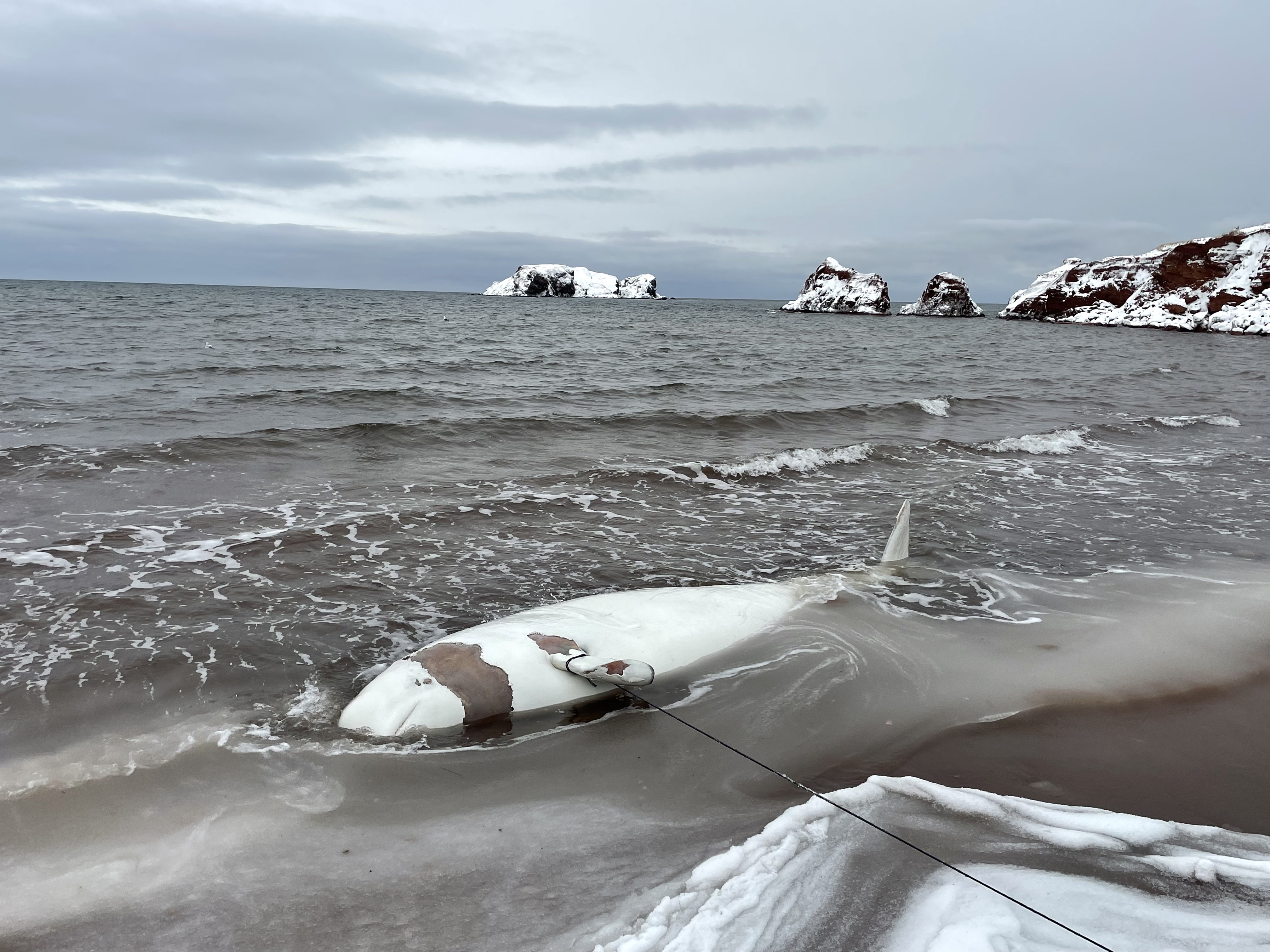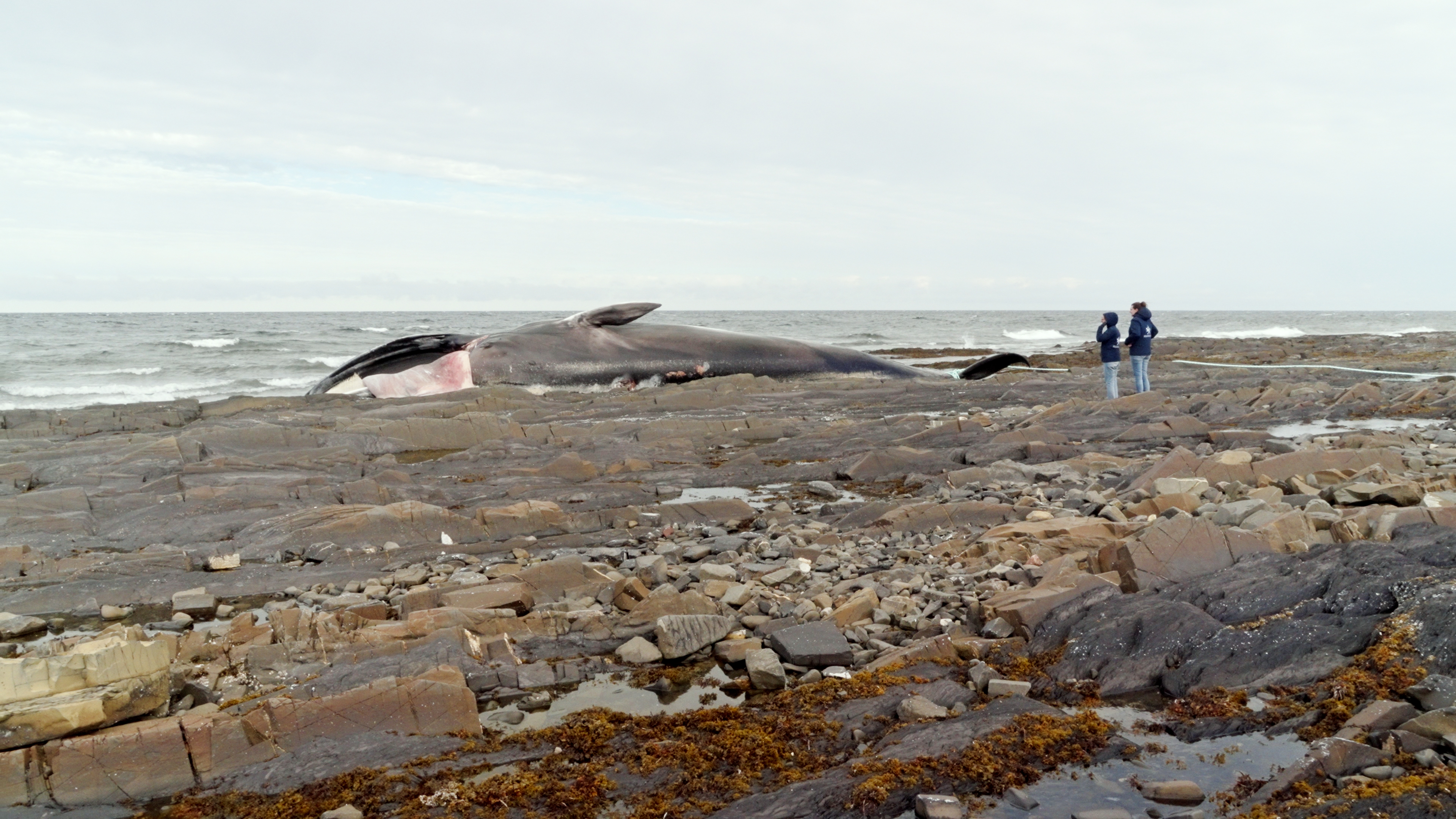Volunteers are our eyes and our hands in the field. In addition to helping the scientific community gain vital knowledge for marine mammal conservation, volunteers are actively involved in raising awareness and educating the public about the life history of these sometimes difficult-to-understand marine animals. This project was made possible through the Government of Canada’s Habitat Stewardship Program for Species at Risk.
Currently, although we have a sufficient number of volunteers in the larger population centres, we lack volunteers in some other parts of Quebec.
Are you motivated, available and a resident of any of the following areas?:
- Between Godbout and Port-Cartier
- Between Les Escoumins and Baie-Comeau
- Between Sainte-Anne-des-Monts and Grande-Vallée
- Between Paspébiac and Percé
The QMMERN invites you to join the hundred volunteers who are one of our organization’s greatest strengths.
What does it take to be a volunteer with the Quebec Marine Mammal Emergency Response Network?
- A certain availability and flexibility in your schedule
- An interest in marine mammals
- The types of equipment used in the call centre’s work: digital camera or smart phone, Internet access, vehicle and mobile phone (for communication in the field and ideally for rapid transfer of visual documentation)
- Three hours of mandatory training (online, remote)
- No experience or prior training required
What does a volunteer do?
Volunteers are called upon to:
- Take photos of stranding sites
- Take measurements of dead animals
- Inform and raise awareness of curious observers present during the intervention
- Establish security perimeters and post signs for cases in progress
To apply
Click on “I’m in” and complete the corresponding form.
Fifteen new volunteers will be recruited and equipped thanks to available funding. This project was made possible through the Government of Canada’s Habitat Stewardship Program for Species at Risk. Volunteers will be selected on a sector-by-sector basis. To confirm your involvement, you will need to participate in remote training that will be offered at no cost.
If you are selected, we will contact you and propose training dates. Topics covered will include the various types of cases encountered, the principles of intervention, the types of actions to be taken in the field and the identification of marine mammals in the St. Lawrence. Following the training, you will receive a comprehensive response kit from the Network.
Thank you for your involvement and we look forward to working with you!





